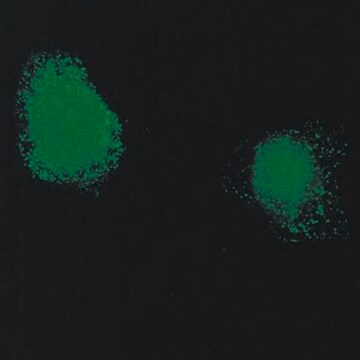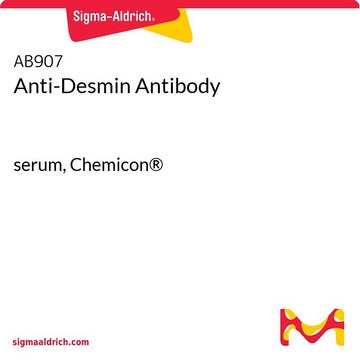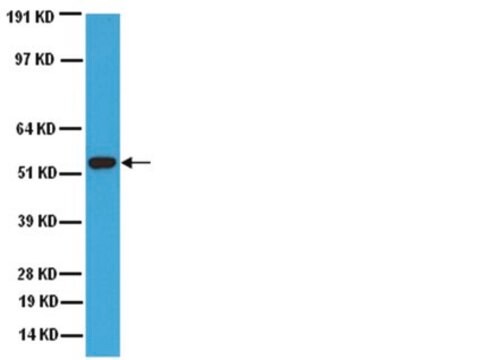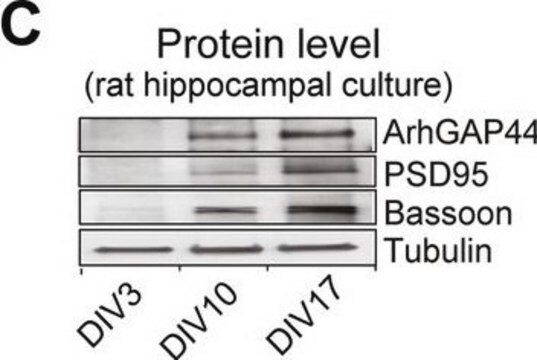MAB8129
Anti-Cytomegalovirus Antibody, immediate early, clone 7D12.2
clone 7D12.2, Chemicon®, from mouse
Synonym(s):
CMV
About This Item
Recommended Products
biological source
mouse
Quality Level
antibody form
ascites fluid
antibody product type
primary antibodies
clone
7D12.2, monoclonal
species reactivity
human
manufacturer/tradename
Chemicon®
technique(s)
immunocytochemistry: suitable
immunofluorescence: suitable
immunohistochemistry: suitable
western blot: suitable
isotype
IgG1
suitability
not suitable for immunohistochemistry (Paraffin)
shipped in
wet ice
Specificity
With CMV the antigens expressed at different times are listed as:
Immediate Early (alpha gene expression): those antigens expressed at 3-12 hrs post-infection generally involved in Transcription such as 72kD major phosphoprotein and a few other other antigens at 60 - 80kD.
Early Antigen (beta genes) a.k.a. Delayed Early or Intermediate Early: expressed at 12-24hrs post-infection. Generally enzymes and one virion structural gene preceding viral DNA synthesis.
Late Antigen (gamma genes): expressed at 36-48hrs post-infection. Generally structural proteins. Major protein = 55kD
Immunogen
Application
Immunocytochemistry.
IFA at 1:3,000-1:6,000 on acetone fixed cells.
Does not work on paraffin embedded tissue sections.
Dilute with buffer pH 7.4-7.6 to desired working volume.
For extensive dilution, protein containing or other stabilizing medium should be used.
Final working dilutions must be determined by end user.
Infectious Diseases
Infectious Diseases - Viral
Physical form
pH 7.6 .
Storage and Stability
During shipment, small volumes of product will occasionally become entrapped in the seal of the product vial. For products with volumes of 200 μL or less, we recommend gently tapping the vial on a hard surface or briefly centrifuging the vial in a tabletop centrifuge to dislodge any liquid in the container′s cap.
Other Notes
Legal Information
Disclaimer
Not finding the right product?
Try our Product Selector Tool.
Storage Class Code
10 - Combustible liquids
WGK
WGK 2
Flash Point(F)
Not applicable
Flash Point(C)
Not applicable
Certificates of Analysis (COA)
Search for Certificates of Analysis (COA) by entering the products Lot/Batch Number. Lot and Batch Numbers can be found on a product’s label following the words ‘Lot’ or ‘Batch’.
Already Own This Product?
Find documentation for the products that you have recently purchased in the Document Library.
Our team of scientists has experience in all areas of research including Life Science, Material Science, Chemical Synthesis, Chromatography, Analytical and many others.
Contact Technical Service





